HBCUs have a long history of graduating some of the brightest minds in science, medicine, law, and business. And while the field of environmental justice and policy may be relatively new compared to some other disciplines, HBCU grads are also leading the way there.
Some of the most-recognized environmental advocacy experts include Dr. Robert Bullard, known as the “Father of Environmental Justice,” Dr. Jennie C. Stephens, a sustainability science and policy expert, and Dr. Ayana Johnson, a co-founder of the Urban Ocean Lab. And the current director of the Environmental Protection Agency, Michael Regan, is a graduate of N.C. Agricultural and Technical State University. These are just a few pioneers who earned their foundational expertise because of HBCUs’ solid environmental commitment. Whether using solar to power their campuses, creating specialized academic programs, or partnering with local communities, HBCUs and organizations like the CDAC Clean Energy Initiative are leading us to a more sustainable future. This blog highlights how three HBCUs are setting an example for environmental commitment.
• Prairie View’s College of Agriculture and Human Sciences has an ongoing Sustainable Agriculture and Renewable Energy (SARE) Program that educates students and the community about sustainable practices, including solar Energy. It promotes using renewable energy sources and offers training and workshops on solar energy technologies and applications.
• The University has engaged in research projects and collaborations related to Solar Energy. Faculty members and students have researched topics such as solar panel efficiency, storage, and integrating renewable energy systems into the power grid. These research initiatives contribute to advancing solar energy technology and developing innovative solutions. And they also implemented a solar farm on campus which generates clean electricity to power facilities.
• The University emphasizes the importance of renewable Energy and provides a platform for students to explore career paths in the solar industry. Students in relevant disciplines can learn about solar energy systems, photovoltaics, and sustainable energy practices. Their College of Engineering explicitly offers a Sustainable Energy and Power Systems (SEPS) program, focusing on research, education, and outreach activities related to sustainable energy generation, power systems, and renewable energy technologies.
• Howard has created their Office of Sustainability to develop and manage a strategic plan to place them among the top sustainable institutions of higher learning in the United States. They are identifying and promoting the growth of “Green” principles and policies that will reduce the University’s carbon footprint while supporting its mission to provide an exceptional educational opportunity. Howard University recently began the process of installing green roofs to aid in the management and mitigation of stormwater runoff. And they partnered with Volt Energy to install 1.2 megawatts (MWs) of solar photovoltaic (PV) at Howard University, which, when completed, is expected to be the largest on-site solar project in Washington, DC.
• Howard has worked to get more student involvement through initiatives such as its first campus energy competition. Howard University students reduced overall energy use by 14% in its participating dorms, which was higher than fellow competitors at American and George Washington Universities. In the Alliance to Save Energy, Howard’s Office of Sustainability Director Alfonzye Chisholm Jr. said the competition helps further its main objectives. “Our University has set sustainability goals to increase the use of renewable energy sources, improve energy efficiency across campus and build student and faculty awareness.”
• Howard incorporates Solar Energy into its research and academic programs. Faculty members and students engage in research projects including Solar cell technology, photovoltaics, and renewable energy integration. The University provides opportunities for students to learn about renewable energy systems, sustainability, and green technologies through various academic programs and coursework.
• In addition to graduating the first male African American head of the EPA, the University has dedicated academic programs to the importance of natural resources and how to use them sustainably. For example, their agriculture and environmental sciences departments cooperate with partners across North Carolina to share research-based information and conduct educational programs that teach small farmers, communities, and individuals how to protect North Carolina’s natural resources. Through hands-on programs and a wide range of resources, they encourage practices that ensure a safe food supply and healthy land that can sustain community needs.
• North Carolina A&T created a Waste Management Institute over 25 years ago to raise awareness of waste management issues and sustainability for the NC A&T community. Their interdisciplinary faculty and students continue to break new ground in environmental sustainability and waste management, including using a design thinking framework to deliver better, more human-centered ecological outcomes. And they have developed The Waste Management Certificate to “highlight” the training of N.C. A&T students in Environmental Security and Waste Management Issues, which also adds value to degree programs.
• The University has partnered with institutions nationwide to establish the $25 million Science and Technology Center for Phosphorus Sustainability (STEPS) led by N.C. State University and funded by the National Science Foundation (NSF). The center is a renewable project that will bring together multiple disciplines in a “convergence research approach” to address and reduce not only society’s dependence on phosphate mining but the amount of phosphorus that impacts our soil and water resources.
• Together with Enviva, the world’s largest producer of sustainable bioenergy, the University has established the Enviva Endowed Scholarship to provide an endowment for merit-based scholarships and to support a more diversified workforce within forestry, agribusiness, agriscience, natural resources, technology, and conservation fields.
Summary
These are just a few examples of HBCUs that are working towards a more sustainable future. Through their ongoing research, academic focus, and community outreach, they are enabling the U.S. to reduce its dependence on fossil fuels and furthering environmental justice.
To find out more about how the CDAC Clean Energy Initiative is bringing clean energy to HBCUs and their surrounding communities, click here.
To read more CDAC Clean Energy Initiative blogs, click here.

